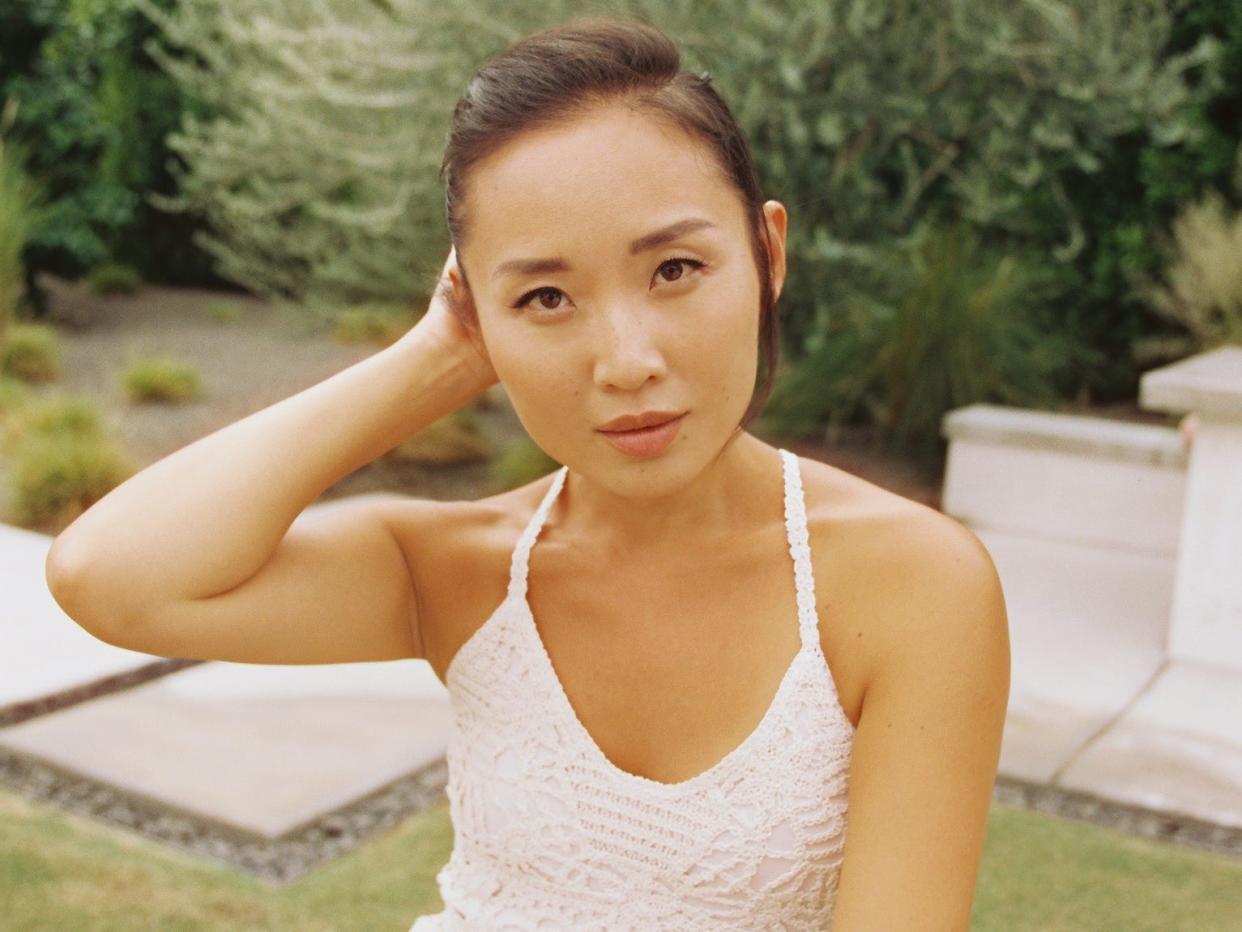How Li Jun Li channeled Anna May Wong, Hollywood's first Asian American actress, in Damien Chazelle's 'Babylon'

Li Jun Li stars in Damien Chazelle's new film "Babylon" alongside Margot Robbie and Brad Pitt.
Her character, Lady Fay Zhu, is loosely inspired by Chinese American actress Anna May Wong.
Li told Insider how she navigated Hollywood as an Asian American actress and where she sees herself next.
Li Jun Li originally swore off acting after she saw a production of "Miss Saigon" as a kid. Just 9 years old at the time, Li watched, saucer-eyed, as scantily-clad women writhed and flirted with soldiers in the play's opening scene, and decided she wouldn't ever act.
"I thought, 'This is what actors do? Oh my gosh, I definitely won't do that,'" Li recalled.
Li was painfully shy and anxious in social settings — she still is, but knows how to manage it better — giving her another reason to stay off the stage.
But the Shanghainese American actress soon found herself enthralled by the entertainment industry after discovering her love of performing as a dance major in high school. Ironically, one of her first roles was as an ensemble member in "Miss Saigon," the very play that had put her off acting in the first place.
Li has since landed roles in a string of television series like "Quantico," "Minority Report," and "Wu Assassins," Netflix's first original show featuring a majority-Asian cast.
Now, the actress is making her break on the big screen, starring in "Babylon" alongside Hollywood heavy-hitters Margot Robbie and Brad Pitt. "Babylon," written and directed by Damien Chazelle, chronicles the rise and fall of Hollywood aspirants during the transition from silent to sound films in the late 1920s.
Striving for representation
Like many actors from underrepresented backgrounds, Li has had to navigate the fraught balance between diversity and typecasting in the entertainment industry.
Her first big role was her 2008 Broadway debut in "South Pacific" as Liat, a young Tonkinese woman who falls in love with an American lieutenant. The interracial romance between Liat and the soldier sparked controversy when it first opened in 1949, and served as a public demonstration of Richard Rodgers and Oscar Hammerstein's defiant stance against racism.
"It was a role I needed to get," Li told Insider. "I needed to get something of that magnitude in order to really break into the industry, because over ten years ago, there were barely any roles for us."
White actors continue to dominate on stage today: While nearly 60% of all roles went to white actors, just 6% went to Asian actors, according to a study by the Asian American Performers Action Coalition.
Despite steps toward increased diversity in Hollywood, Li said she turned down some roles that she felt were pigeonholing Asian American actors in certain roles, like the brainy techie or software engineer. Other times, Li was told she was not being considered for a role because there was already another Asian in the cast — a "quota-filling" scenario that serves as an insidious regression of efforts to make Hollywood more inclusive.
"We've been fighting for representation for so long that it's also very easy to have the pendulum swing so far the other way," Li said. "However, I've always believed that if I did my most honest work and my best work, they cannot ignore me."
Channeling an icon
Li's persistence paid off when she landed a role in Damien Chazelle's film "Babylon." A fan of Chazelle since his blockbuster films "Whiplash" and "La La Land," Li was immediately drawn to the opportunity to work with the director. The chance to portray the iconic Chinese American actress Anna May Wong also compelled Li.
"I said to myself, 'I need that role. This is mine,'" Li said.
Li immersed herself in research, poring through Wong's biographies and watching her films. She studied the actress's mannerisms, poise, and speech — ultimately impressing Chazelle and landing the role of Lady Fay Zhu, a fictional character who is loosely inspired by Wong.
Although Li was originally disappointed when she heard she wouldn't be playing Wong herself, Li leaned into the creative freedom it afforded her. Li and Chazelle ditched Wong's Mid-Atlantic accent, pencil-thin brows, and finger curls because they "didn't want to be too on the nose," according to Li.
But the actress imbued her Lady Fay — a witty and sultry cabaret singer who writes cue cards on the side — with some of Wong's defining characteristics, including her elegance, fashion sense, and identity as an immigrant.
"They both tell the story of what it meant to be discriminated against," Li, who immigrated to Colombia as a child, then later to New York, told Insider. "I resonated with that, with having to hold your own."
"Babylon" may be Li's first major role in a Hollywood blockbuster, but it certainly won't be her last. Li said she's eyeing more film roles — from dramas to Marvel movies — to keep her resume "colorful."
The actress hopes "Babylon" inspires people to return to the theaters and experience how the filmmaking industry and technology have evolved over the decades.
"I hope that my opportunity to be in such a large-scale film will inspire others in the AAPI community to pursue their dreams," Li said.
Read the original article on Insider


